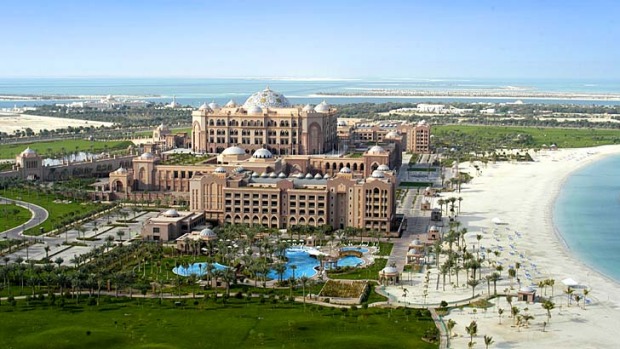
Travelling in the Middle East has never been so accessible for Aussies, writes Ben Groundwater.
It used to take some serious effort to get to the Middle East, and some serious guts. This was a part of the world that intimidated people. Now, however, things have changed. Thanks to the boom in Middle Eastern air carriers, the likes of Emirates, Etihad and Qatar Airways, Australians are flocking to the region like never before.
It is not only Dubai, Abu Dhabi and Doha that have become firm favourites but their neighbours as well, countries that were once off the beaten track but are now benefiting from an influx of Australians keen for a little adventure. Countries such as Jordan, Oman and the United Arab Emirates offer relative safety and comfort for all levels of traveller, as well as a host of unique experiences, while Turkey features a fascinating mix of Europe and Asia, and makes the perfect entry point into Middle Eastern travel.
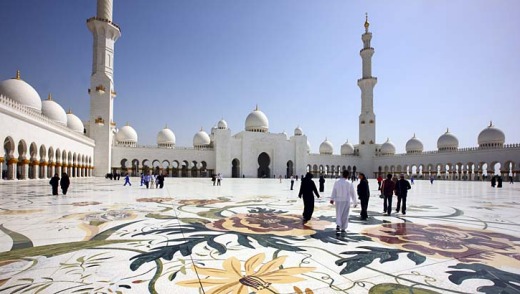
From historical centres such as Gallipoli and Troy, to ancient treasures such as Petra, from maze-like souks in Muscat to desert tours in Dubai, there are plenty of reasons to make this area more than a quick stopover.
The following is an introductory guide to all that's great about the Middle East, a how-to and where-to of this fascinating region. We have profiled the most approachable destinations, with tips on what to see, how to dress and how to get around safely.
The Middle East does not have to be an intimidating place. In fact, it is a group of truly incredible destinations, offering an intriguing mix of ancient mystique and modern luxury.
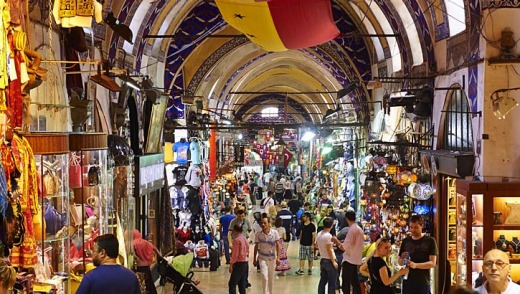
TURKEY
While Turkey straddles the geographic and political divide between Europe and the Middle East, the country's culture is unquestionably skewed towards the latter. The food, architecture, music and historic sites all benefit from a rich mix of Turkish, Arabian and Persian influences, which, when coupled with the modernity of Westernisation, make Turkey the perfect entry point for first-time visitors to the Middle East.
Turkey is almost impossible to fully appreciate in a short stopover. In fact, there is enough here to keep you occupied for weeks, from the mosques, bazaars and Ottoman palaces of Istanbul to the islands of the Aegean Sea, from historic sites such as Gallipoli and Troy to natural phenomena such as the rock formations of Cappadocia and the travertine hot springs of Pamukkale.
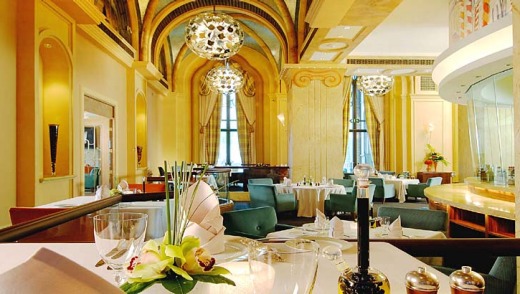
Begin your adventure in Istanbul, a city that brings Europe and Asia together, a cosmopolitan place of great bars, restaurants, museums and galleries, as well as world-famous sites such as the Blue Mosque, Hagia Sophia and the Grand Bazaar. It all feels very European, until you cross the river to Uskudar, that is, and enter the Middle East proper.
A dawn balloon flight over Cappadocia appears on many a bucket list, while a tour of Gallipoli is a must for most Australian visitors. Travel within Turkey is relatively straightforward and safe. There is a good network of buses throughout the country, and plenty of global tour operators offer itineraries that take in the major highlights. One of the undeniable joys of travel in Turkey, too, is the food. You will never look at a kebab the same way again.
Visas Australian citizens are required to apply online for a Turkish e-visa (check the consulate for the latest details).
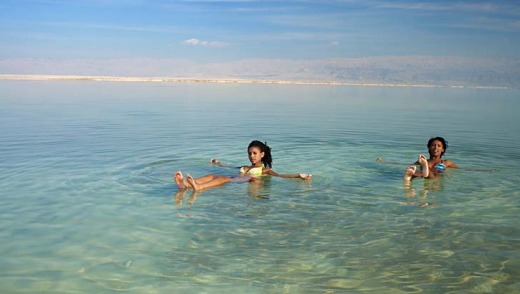
Getting there Emirates, Etihad and Qatar Airways all fly direct to Istanbul from their hubs. See emirates.com/au, etihad.com, qatarairways.com.au.
Local customs In this liberal country, it is not quite as important for visitors to worry about standards of dress, unless entering mosques or other religious sites, although Westerners should dress conservatively outside the larger cities.
Don't miss A dawn balloon flight over Cappadocia. See goturkey.com.
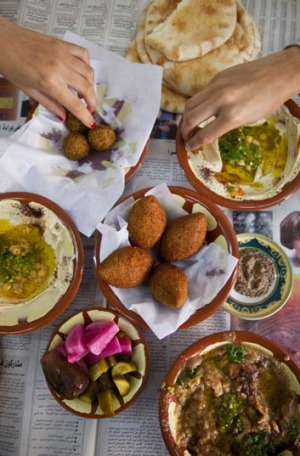
OMAN
Oman is going gangbusters. The country experienced a 71 per cent rise in Australian visitors from 2011 to 2012, and that number hit double figures once again the year after. Bordering the United Arab Emirates (UAE), Oman is one of the easiest countries for travellers to get to from Dubai or Abu Dhabi, and offers a contrasting experience with those modern metropolises.
The sultanate's roots are of fishermen and shepherds, and today the country is rich in Arabian history and culture, from its desert forts and bustling souks to oasis towns and beach resorts.
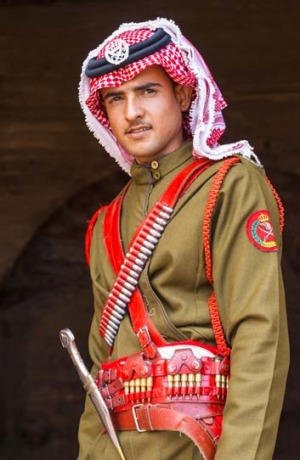
You can soak up 7000-year-old culture in Oman or you can get in a boat and go game fishing.
The capital, Muscat, is the obvious jumping-off point for most travellers, and the city offers a mix of historic charm and modern-day infrastructure. The 16th-century Al Jalali Fort is the postcard attraction, a former defensive outpost and prison built during Portuguese occupation and later captured by the Ottomans and the Persians. There are also mosques, museums and souks to explore - Oman is famous for its silver and spices. Outside Muscat, there is dune-bashing and camel riding in the desert at Wahiba Sands, tours of the UNESCO-heritage-listed Bahla Fort, hiking through the mountains, and snorkelling on the reefs along Oman's coastline. And don't forget the food, a spicy mix of Arabian, Persian and Indian influences.
Visas Australian citizens can obtain visas upon arrival in Oman (check the consulate for details).
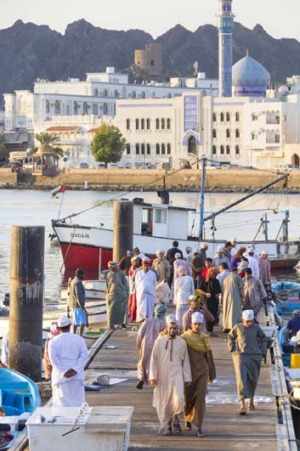
Getting there Emirates, Etihad and Qatar Airways all fly to Muscat and transport by bus is available from Dubai to Muscat. Plenty of cruise ships also make the Omani capital a port of call.
Local customs While Oman is reasonably liberal and tolerant, Westerners should avoid wearing tight or revealing clothing in public places.
Don't miss Every visitor to Oman should see Al Jalali Fort. See tourismoman.com.au.
JORDAN
There is one major reason tourists have long been making the trek to Jordan: Petra, the UNESCO-listed complex of rock-hewn buildings that has become the symbol of the country. Built about 300BC, these carved edifices are beautifully preserved and surrounded by plenty of tourist infrastructure.
Visitors can hike in the surrounding mountains, ride horses nearby, ride camels through the desert or simply explore the ruins. There is more to Jordan, however, than Petra.
This family-friendly destination is safe and easy to travel around, particularly with a guide, and offers plenty of educational opportunities for younger travellers. In the capital, Amman, the Children's Museum has more than 150 interactive exhibits.
At the spectacular Roman ruins of Jerash, meanwhile, mock chariot races are staged each day.
Jordan can also do luxury. At the Dead Sea, the Kempinski Hotel offers five-star accommodation, a beautiful day spa and access to that famed body of water.
Or for something a little more alternative, the Feynan Eco Lodge, set in the Dana Biosphere Reserve, is a boutique hotel with an environmental conscience. Regardless of where you stay, however, Jordan is a cultural destination, a place to soak up good food in areas such as Rainbow Street in Amman, or feel the history of the site of Jesus Christ's baptism in the Dead Sea, or enter another world at a Bedouin camp in Wadi Rum.
Visas Australian passport holders can obtain visas on arrival in Amman (check the consulate for details).
Getting there Emirates, Etihad and Qatar Airways all fly direct to Amman from their hubs.
Local customs Modest dress covering the arms and legs is required in mosques and religious sites. Alcohol can be consumed only in licensed areas. Always show respect towards the country's monarchy.
Don't miss The UNESCO heritage sites of Petra. See visitjordan.com.
ABU DHABI
Dubai's little sister has grown up. While once a small desert outpost in a huge emirate, Abu Dhabi has morphed into a genuine rival for Dubai's business, a metropolis that offers something different for travellers prepared to forgo the bright lights and big city. Most significantly for culture vultures, Abu Dhabi is home to one of the world's most impressive places of worship: the gleaming Sheikh Zayed Grand Mosque on the outskirts of town. It is a pleasure to just wander along the mosque's marble pathways, and a relief to enter its airconditioned rooms.
However, in a city that has been able to call itself such a thing for only a decade or so, culture is maybe not its biggest drawcard.
There are theme parks, like in Dubai, and palatial hotels outrageous in their opulence, but what sets Abu Dhabi apart are its green spaces and its pedestrian-friendly beachfront. Many a warm evening in this city is spent wandering along the walkway at Corniche, past luxury hotels and touristy playgrounds, the skyscrapers of Abu Dhabi looming in the distance. There are plenty more experiences that are unique to Abu Dhabi. The emirate is home to the world's largest indoor theme park, Ferrari World, and in it the world's fastest rollercoaster, the 240km/h Formula Rossa.
There is also the chance to visit the Abu Dhabi Falcon Hospital, where prized hunting birds are patched up and cared for. Like many attractions in the emirate, it is an eye-opener.
Visas Australian passport holders do not require visas to enter the UAE.
Getting there Etihad Airways flies direct to Abu Dhabi. See etihad.com. There are also regular bus services that connect Abu Dhabi with Dubai and Sharjah airports that take about two hours.
Local customs Abu Dhabi is not quite as tolerant as Dubai. A few hotels have reportedly asked couples sharing a room to show proof of marriage, although it is more than likely this won't happen, and homosexuality is illegal, as in the rest of the UAE. Public drunkenness and drinking in unlicensed areas are also against the law.
Don't miss Buy a day pass to the beach club at the ridiculously luxurious Emirates Palace Hotel.
DUBAI
You have probably been to Dubai before or, at least, you have heard all about it. In its short life, the Arabian city has gone from little more than a village in the desert to a bona-fide metropolis and favourite stopover for Australians making their way to Europe.
So what's new in Dubai?
Start at Dubai Airport, where the world's first purpose-built concourse for A380s opened last year. The airport's capacity is now 75 million passengers a year. Next, move to the hotels. The Sofitel Dubai at The Palm, the Waldorf Astoria at The Palm, the Kempinski Hotel and Residences, the Anantara at The Palm, the Conrad Dubai and the Oberoy Dubai have all opened recently.
In terms of attractions, the Atlantis Aquaventure waterpark has a new ride, the Atlantis Tower of Poseidon, and will soon have the world's first zipline circuit to be integrated into a waterpark. Ski Dubai, meanwhile, is also getting a zipline, for when skiing in the desert is not crazy enough.
Hang around for a little while, however, and you will see even more to impress in Dubai.
Coming soon: the IMG Worlds of Adventure, the largest temperature-controlled indoor entertainment destination in the world. Then there is the Dubai Safari Park and Zoo, opening later this year, and the Dubai Opera House and Cultural District, opening in early 2015.
Visas Australian passport holders do not need visas to enter the UAE.
Getting there Emirates flies direct from Sydney to Dubai. See emirates.com/au.
Local customs While dress standards are relaxed for tourists in Dubai, pay attention to local customs and dress modestly when entering mosques. Public drunkenness is not tolerated.
Don't miss A ride to the top of the world's tallest building, the Burj Khalifa. See definitelydubai.com.
TIP
TICKET TO RIDE
One of the best ways to see the Middle East is with Emirates' Arabian Air Pass. The pass, available to Emirates passengers who have booked flights from Australia to Dubai and beyond, offers fares to destinations including Jordan, Oman, Egypt and the UAE from just $US60 ($64) in economy, $US180 in business class and $US300 for first class, one-way. There is a maximum of six flight coupons per passenger. Phone 1300 303 777, or see emirates.com/au.
FIVE CUSTOMS TO OBSERVE IN THE MIDDLE EAST
DRESS CODE
Dress conservatively, particularly when entering religious sites. This means trousers and long sleeves for men, and loose-fitting, long clothing (and sometimes headscarves) for women. If in doubt, take note of the way the locals dress.
TAKE IT EASY
Refrain from being drunk in public. While Turkey, particularly Istanbul, is very liberal in this respect, in other countries it pays to keep a lid on excess consumption of alcohol.
KEEP IT CLEAN
Refrain from public displays of affection. PDAs are not the done thing.
HOW MUCH?
You're allowed to haggle in souks and bazaars - in fact, you're expected to.
GIRLS v BOYS
When meeting people for the first time, men will talk to men, and women will talk to women. Rarely do different genders address each other directly in an initial meeting.